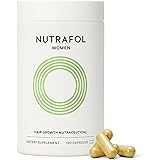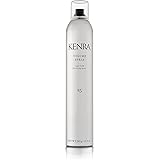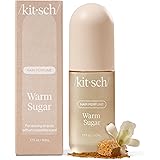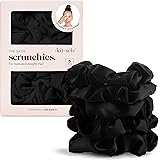Introduction to Skincare Routines
Skincare routines have become an essential component of personal care, significantly influencing the pursuit of a flawless complexion. These structured regimens encompass a variety of products and practices designed to address specific skin types and concerns. With the growing awareness of skin health, the need for a tailored approach to skincare has emerged, moving away from one-size-fits-all methods. This personalization is vital as it acknowledges the unique conditions and requirements of diverse skin types, thus allowing for more effective treatment and maintenance.
Revolutionary approaches in skincare have transformed traditional routines, introducing an array of innovative products and techniques. With advancements in dermatological research and technology, consumers now have access to formulations that were once unavailable or heavily restricted. These modern products often incorporate cutting-edge ingredients that target specific skin issues while bolstering the skin’s natural defenses. For example, the integration of antioxidants, peptides, and hyaluronic acid has become commonplace, enabling individuals to achieve not only visible improvements but also long-term skin health.
Furthermore, the rise of holistic and clean beauty movements has led to a significant shift in how individuals perceive skincare. Many are now leaning towards using natural and organic ingredients, advocating for transparency in product formulation. This change encourages consumers to become more informed about what they apply to their skin, promoting a greater understanding of the significance of ingredient selection in their quest for a flawless complexion.
In summary, the evolution of skincare routines is marked by both personalization and innovation. As individuals seek to embrace their unique skin challenges, the importance of a tailored skincare regimen cannot be overstated. Emphasizing a balance between traditional knowledge and modern advancements will empower consumers to achieve their desired results effectively.
Understanding Your Skin Type
Recognizing your skin type is crucial for establishing an effective skincare routine that caters to your unique needs. Broadly, skin can be categorized into four main types: oily, dry, combination, and sensitive. Each of these skin types has distinct characteristics and requires specific care to maintain a balanced complexion.
Oily skin is characterized by an excess production of sebum, often leading to shininess particularly in the T-zone, which includes the forehead, nose, and chin. Individuals with oily skin are prone to acne, enlarged pores, and blackheads. To manage this skin type, it is essential to choose oil-free products and incorporate ingredients such as salicylic acid or benzoyl peroxide into your skincare regimen. These ingredients can help control oil production and prevent breakouts.
Conversely, dry skin is marked by a lack of moisture, which can result in flakiness, tightness, and an overall dull appearance. Those with dry skin should focus on hydrating products containing hyaluronic acid, glycerin, and rich emollients like shea butter. Regular exfoliation is also beneficial to remove dead skin cells and improve skin texture.
Combination skin presents a mix of both oily and dry characteristics, often resulting in an oily T-zone and dry cheeks. For this skin type, it is essential to adopt a tailored approach, possibly utilizing different products for various areas of the face. A gentle cleanser and a lightweight moisturizer can offer a balanced solution without exacerbating either condition.
Finally, sensitive skin tends to react negatively to various products, leading to redness, inflammation, or irritation. Those with sensitive skin should prioritize gentle, fragrance-free formulations and conduct patch tests before incorporating new products. Understanding these skin types lays a foundation for selecting the right skincare products and routines, ultimately leading to a flawless complexion.
Key Ingredients for Flawless Skin
The quest for flawless skin has led to the emergence of numerous skincare ingredients, each with unique benefits aimed at addressing a variety of skin concerns. Among the most celebrated of these ingredients are retinoids, hyaluronic acid, vitamin C, and peptides. Understanding how these components work can empower individuals to make informed decisions regarding their skincare products.
Retinoids, derivatives of vitamin A, are known for their potent anti-aging properties. They work by accelerating cell turnover, which helps to diminish the appearance of fine lines, wrinkles, and uneven skin texture. Additionally, retinoids can aid in the treatment of acne by unclogging pores and regulating sebum production. Those employing retinoids in their skincare routines often notice a remarkable improvement in the overall appearance of their skin over time.
Another crucial ingredient is hyaluronic acid, a naturally occurring substance in the body that holds an impressive capacity to retain moisture—up to a thousand times its weight. This hydrating ingredient helps maintain skin elasticity and suppleness, making it effective for anyone experiencing dryness or dehydration. Incorporating products containing hyaluronic acid can result in a plumper, more radiant complexion.
Vitamin C is recognized for its antioxidant properties, which assist in neutralizing free radicals that can lead to skin damage. Beyond its protective qualities, vitamin C is instrumental in brightening the skin and improving overall luminosity. It also plays a role in collagen synthesis, contributing to firmer skin over time.
Lastly, peptides are short chains of amino acids that play a significant role in skin health. They help to stimulate collagen production, enhance skin barrier function, and promote tissue repair. By incorporating peptides into a skincare regimen, individuals can experience improved skin texture and resilience.
In conclusion, the integration of retinoids, hyaluronic acid, vitamin C, and peptides in skincare routines offers a holistic approach to achieving a flawless complexion. By understanding the function of these ingredients, individuals can confidently choose products that align with their skin health goals.
Building a Custom Skincare Routine
Creating a personalized skincare routine is essential for achieving a flawless complexion, as skin types and concerns vary from person to person. The initial step in building an effective skincare regimen involves identifying one’s skin type, which can be categorized into several classifications such as oily, dry, combination, sensitive, and normal. Understanding your skin type allows for the selection of products that cater specifically to your skin’s needs, ensuring a higher likelihood of positive outcomes.
Once the skin type is established, it is crucial to address specific skin concerns, such as acne, pigmentation, or aging. This approach can help tailor the skincare routine more effectively. For a comprehensive skincare regimen, both daytime and nighttime routines should be developed, focusing on the appropriate products and their order of application. A typical daytime routine may include cleansing, toning, applying a serum, and moisturizing, followed by the application of sunscreen to protect against UV damage. At night, the routine may shift, typically emphasizing a more robust cleansing process to eliminate impurities, followed by the application of serums and thicker moisturizers to aid in skin repair and hydration during sleep.
The order of product application is crucial; typically, lighter, water-based products are applied first, followed by thicker creams. Consistency is key for observing improvements. Regular adherence to the routine—allowing sufficient time to see results—can lead to significant changes in skin texture and tone. Patience is essential, as skincare products often take several weeks to months before their effects become noticeable. Adopting a routine tailored to individual skin needs, while remaining committed over time, is the pathway to achieving and maintaining a healthy, flawless complexion.
Incorporating Innovative Techniques
The world of skincare is ever-evolving, with continuous advancements that promise to enhance the effectiveness of routines. One of the most innovative techniques being embraced is facial massage, which not only promotes relaxation but also stimulates blood circulation, encouraging a healthier, more radiant complexion. By incorporating facial massage into daily rituals, individuals can help soothe tension and reduce puffiness, allowing skincare products to penetrate deeper into the skin.
Another popular approach recently gaining traction is rooted in K-beauty practices. Originating from Korea, these elaborate routines often consist of multiple layers of products, including essences, serums, and moisturizers. The K-beauty philosophy emphasizes hydration and nourishment, with an emphasis on gentle, step-by-step application. This method not only enhances hydration levels but also allows the skin to absorb active ingredients more effectively, maximizing the potential benefits of each product.
In addition, the use of tools such as jade rollers and gua sha has become increasingly prevalent in skincare regimens. These tools, originating from ancient traditions, provide a unique way to enhance the absorption of skincare products and promote lymphatic drainage, thus invigorating the skin. Jade rollers are particularly renowned for their cooling properties, which can help reduce inflammation and redness upon application. Meanwhile, gua sha, with its sculpting techniques, can help lift and define the face while also improving overall texture.
Employing these innovative techniques not only elevates the skincare experience but also has a direct impact on the overall effectiveness of products. By combining traditional practices with modern innovations, individuals can achieve a flawless complexion, transforming their skincare routines into luxurious and effective self-care rituals.
The Role of Diet and Lifestyle
Maintaining a radiant complexion is significantly influenced by one’s diet and lifestyle choices. The foods we consume play a pivotal role in determining the health and appearance of our skin. For instance, a diet rich in antioxidants—found in fruits and vegetables—supports skin repair and combats oxidative stress. Foods high in vitamins C and E, such as citrus fruits, nuts, and leafy greens, are particularly beneficial for enhancing skin texture and elasticity. Meanwhile, omega-3 fatty acids found in fish, walnuts, and flaxseeds contribute to retaining skin moisture and reducing inflammation, making them essential for maintaining a healthy complexion.
Hydration is another crucial factor in skin health. Drinking adequate water throughout the day helps to keep the skin plump and prevents dryness. Dehydration can lead to a dull complexion and exacerbate skin issues like acne and eczema. Incorporating hydrating foods, such as cucumbers, watermelon, and oranges, can further enhance skin hydration levels.
Conversely, certain lifestyle choices can detrimentally impact skin health. Diets high in refined sugars and processed foods may lead to increased oil production, acne flare-ups, and other skin problems. Similarly, excessive alcohol consumption and smoking can accelerate skin aging and contribute to issues such as uneven skin tone and the formation of fine lines. Additionally, getting sufficient sleep and managing stress effectively are essential components of a healthy lifestyle that directly affects skin vitality. Poor sleep and elevated stress levels can lead to hormonal imbalances, resulting in breakouts and other skin concerns.
Incorporating a balanced diet and mindful lifestyle choices fosters not only inner health but also enhances outer appearance. Embracing habits that prioritize nutrient-rich foods and hydration can significantly contribute to achieving a flawless complexion over time. Therefore, understanding the intricate relationship between dietary choices and skin health is vital for anyone aiming to improve their skin’s appearance.
The Importance of Sunscreen
In the pursuit of achieving a flawless complexion, the application of sunscreen stands as a non-negotiable element in any skincare routine. Regardless of skin type, incorporating sunscreen daily is crucial for protecting the skin from harmful ultraviolet (UV) rays, which can lead to premature aging, sunburn, and even skin cancer. It is essential to understand that even on cloudy days or during winter months, UV rays continue to penetrate the atmosphere and affect the skin.
There are primarily two types of sunscreen available in the market: chemical and physical (or mineral) sunscreen. Chemical sunscreens work by absorbing UV radiation through their chemical ingredients, transforming it into heat which the skin then releases. On the other hand, physical sunscreens contain active mineral ingredients, such as zinc oxide or titanium dioxide, which sit on the surface of the skin to reflect UV rays. When selecting the right sunscreen, individuals should consider their skin type and specific needs. For sensitive skin, mineral-based sunscreens are often recommended due to their gentle nature, while those with oily or acne-prone skin may prefer lightweight, non-comedogenic chemical formulations.
Another critical aspect of using sunscreen is the SPF (Sun Protection Factor) rating. It is advisable to use a broad-spectrum sunscreen with an SPF of at least 30, which blocks approximately 97% of UVB rays. Regular application is key to ensuring maximum protection; therefore, it is recommended to reapply every two hours, especially after swimming or sweating. Understanding the significance of daily sunscreen application not only prevents immediate skin damage but also promotes long-term skin health, making it an indispensable step in any skincare regimen. When consistently adhered to, sunscreen can play a pivotal role in maintaining the skin’s integrity and overall appearance.
Debunking Skincare Myths
In the world of skincare, misinformation can lead to misguided practices that ultimately compromise skin health. One of the most prevalent myths is the belief that more expensive products guarantee better results. Many consumers assume that high price tags inherently equate to higher efficacy; however, this is not always the case. Ingredients and formulations play a more critical role in skincare effectiveness than the cost of a product. A well-formulated product that fits your skin type is more likely to yield positive results than an expensive option that does not address your specific needs.
Another common misconception is that using multiple products will lead to superior results. The notion that layering numerous serums and moisturizers creates a more potent skincare routine is misleading. In reality, excessive layering may clog pores and cause irritation, particularly for sensitive skin types. A streamlined regimen focusing on quality over quantity—utilizing a few effective, compatible products—tends to be more beneficial for maintaining optimal skin health.
Moreover, many people believe that oily skin does not need moisture. This statement is far from accurate, as all skin types require hydration. Those with oily skin can still benefit from lightweight, non-comedogenic moisturizers that provide necessary hydration without exacerbating oiliness. Skipping moisturizer can lead to increased oil production, as the skin compensates for dryness.
Lastly, the myth that sunscreen is only necessary on sunny days can be quite harmful. Harmful UV rays can penetrate clouds and cause significant skin damage regardless of weather conditions. Daily sunscreen application is essential for protecting against premature aging and skin cancer, regardless of visibility of the sun. By addressing these myths and focusing on evidence-based practices, individuals can cultivate a more effective skincare routine, ultimately leading to a healthier and more radiant complexion.
Conclusion and Recommendations
Achieving a flawless complexion is a blend of consistent care, personalized routines, and the right products. Throughout this blog post, we have explored various revolutionary skincare routines, emphasizing the importance of understanding one’s skin type and specific needs. Embracing these tailored skincare strategies is essential for maintaining healthy skin and enhancing one’s natural glow.
When developing an effective skincare routine, it is vital to consider the foundational steps: cleansing, toning, moisturizing, and protection. Each step plays a crucial role in preparing the skin to absorb beneficial ingredients and safeguard it from environmental challenges. The incorporation of serums and treatments targeted to address individual skin concerns, such as acne, hyperpigmentation, or signs of aging, can further elevate the quality of your regimen.
For those seeking product recommendations, consider the following trusted options: cleansers with gentle exfoliating properties, hydrating toners, serums enriched with antioxidants, and moisturizers featuring nourishing ingredients. Brands that prioritize natural, cruelty-free formulations often provide high-quality choices that are suitable for a range of skin types. Additionally, incorporating a broad-spectrum sunscreen into your daily routine is essential to protect your skin from harmful UV rays.
To explore further, readers can engage with online communities, skincare blogs, and social media platforms dedicated to skincare discussions and tips. Such resources not only provide valuable insights but also allow for sharing experiences among skincare enthusiasts. As you embark on your skincare journey, remember that consistency is key. By adopting a revolutionary skincare routine that resonates with your unique skin needs, you pave the way toward a healthier, more radiant complexion.







Оформите займ https://zaimy-59.ru онлайн без визита в офис — быстро, безопасно и официально. Деньги на карту за несколько минут, круглосуточная обработка заявок, честные условия и поддержка клиентов 24/7.
Дивіться на сайті: https://informative.com.ua/didzhytal.html
http://Jeffreywhaps
Благодаря профессиональному сопровождению ВЭД избежали штрафов и задержек https://vsoprovozhdenie1.ru/
http://Jeffreywhaps
Сопровождение ВЭД деятельности позволило избежать недоразумений с таможней и ускорить оформление груза https://vsoprovozhdenie.ru/